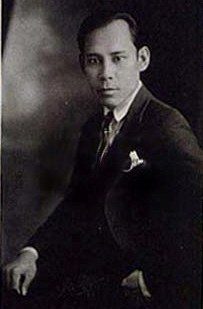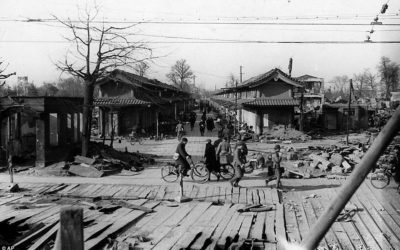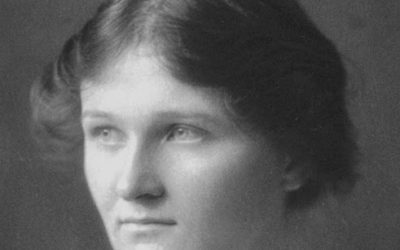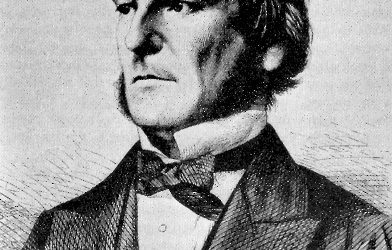The humble yo-yo has existed in some form since the days of Ancient Greece and has appeared independently in cultures across the world. For millennia it was simply a wheel attached to a length of string so that it could be twirled or thrown and then caught again. There was no element of skill to playing with one; that development, along with the name “yo-yo” itself, would have to wait until the early 20th century. And the modern yo-yo, with all its tricks, is practically synonymous with the brand name Duncan.
Donald F. Duncan was a brilliant marketer whose name, along with yo-yos, is associated with the development of Good Humor ice cream and a successful line of parking meters. Duncan yo-yos were by far the most popular brand from the 1930s to the 1960s, selling in the tens of millions during the Duncan Toy Company’s peak years. However, Duncan didn’t invent the modern yo-yo and didn’t give the toy its name; in fact, he wasn’t even the first person to hold contests that showed off the toy. The contests, the name, and the modern design were all brought together for the first time in 1928 by another man, the Filipino entrepreneur Pedro Flores.
An immigrant who moved to the United States as a young man in 1915, Flores had grown up with yo-yos. They were common as hand-carved toys in his native Philippines, where the name “yo-yo” originated. What’s more, the 20th-century Filipino toy featured a noteworthy addition: instead of the string being simply tied to the wheel’s axle, it formed a loop around the axle. This kept the wheel spinning no matter what was done with the string, allowing the user to play dozens of tricks such as “throwing a sleeper” and the ever-popular “walking the dog”. Without that feature, the modern popularity of the yo-yo as a toy would never have been possible.
But back in 1928 Flores hardly seemed like he would set the world on fire. After several abortive attempts at higher education he was working as a bellhop in a Santa Barbara hotel. One day he happened to read a newspaper article about a man who had supposedly made millions by selling a simple toy made from string and a rubber ball; this became an inspiration to Flores, who decided to found his own toy company to sell yo-yos.
Unable to find investors willing to support his dream, Flores started carving his yo-yos by hand and selling them around his neighborhood. The toy caught on, and soon Flores was able to buy equipment to mass-produce them, selling hundreds of thousands of his unique Flores yo-yos. Within the year the yo-yo was a sensation, thanks in no small part to Flores’ knack for promotion. He knew that the best way to interest children in the toy was to demonstrate what could be done with it, and so he marketed his products with door-to-door demonstrations (which he initially performed himself) and contests. Few toys, in fact few products overall, have generated such a huge market in such a short time.
Flores’ first entrepreneurial experience was sweet, but short. The company had been founded in 1928, and by 1930 he was already making plans to sell it lock, stock and barrel to the Duncan Toy Company. Several considerations may have led to this apparently strange decision. The opening years of the Great Depression had sent a chill through the entire business world, and the $250,000 Duncan offered for Flores’ brand would have been a strong temptation; it was an enormous sum back then. Flores may also have been wary of increased competition in the future, particularly from savvy business rivals like Duncan himself. But perhaps most importantly, Flores’ heart wasn’t necessarily in the day-to-day running of a big business. He is reported to have said that he would rather spend his time teaching children how to play with yo-yos than selling the toys to them.
In fact, even after selling his company Flores remained active in the world of yo-yos. He ran contests and exhibitions for Duncan and continued the work of popularizing the toy that he had begun with his own company. The success of Duncan in the ‘30s likely owes as much to Flores’ direct involvement as it does to the pre-existing popularity of his design and brand identity
Donald F. Duncan, with his marketing acumen and genius for organization, resembles in many ways the well-known McDonald’s franchiser Ray Kroc. He took a business that was already successful and expanded it into a nationwide institution, so much so that his company is still strongly associated with the product in the minds of most American consumers. But Pedro Flores was the innovator who made that success possible, the man who gave the first strong push to a wheel that is still spinning profitably today.
…As a brief postscript, we have two interesting notes on a yo-yo competition held by Flores in 1929. First, the contest featured trophies for both boy and girl contestants; the female winner, 13-year old Catherine Hyatt, received a silver-plated trophy that is still proudly owned by her descendants. And the male winner, in a contest held almost ninety years ago, came from a tiny minority group that still tends to dominate yo-yo contests to this day; his name was Toshio Nakamura.
Next Post: James Whale, the openly gay film director who gave us the early Hollywood classic The Invisible Man














